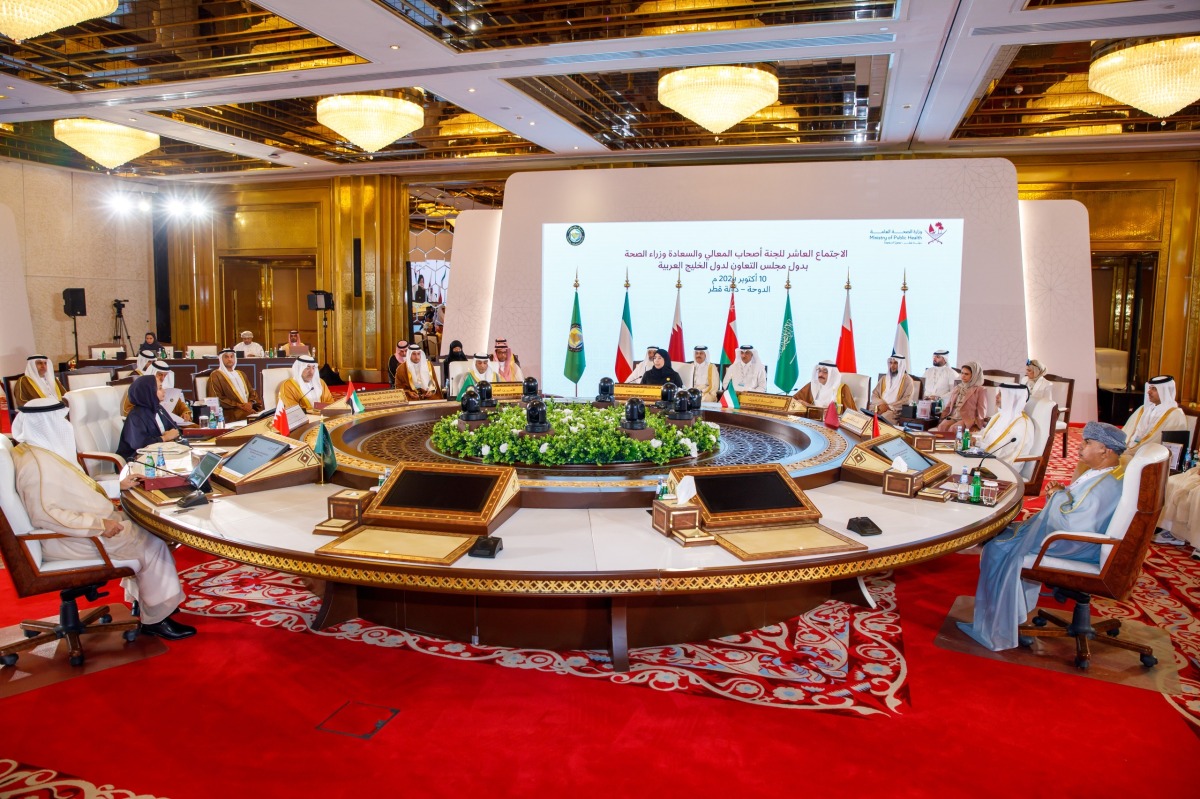The State of Qatar recently hosted the 10th Meeting of the GCC Health Ministers Committee and the 87th Meeting of the Health Ministers Council of the GCC, chaired by the Minister of Public Health HE Dr. Hanan Mohammed Al Kuwari. In her address, Dr. Al Kuwari emphasized the importance of cooperation at the GCC level, as well as regionally and internationally, to strengthen healthcare systems and enhance health security. She also highlighted the significance of topics discussed at the meeting, such as the Healthy Cities initiative and the implementation of the International Health Regulations (2005), to improve efficiency and promote international cooperation in health.
HE Secretary-General of the GCC Jasem Mohamed Albudaiwi expressed gratitude to HH the Amir Sheikh Tamim bin Hamad Al Thani and the government of Qatar for hosting the meetings, emphasizing the importance of the health sector in achieving societal health development. He also highlighted the achievements of GCC countries in healthcare, such as the increase in hospital beds, doctors, and pharmacists, and the benefits received by Gulf citizens from government medical services in other Council countries. He commended the focus on greater coordination, integration, and connectivity among the GCC countries, as well as the prestigious standing they have attained regionally and internationally.
During the 87th Meeting of the Health Ministers Council of the GCC, Dr. Al Kuwari stressed the importance of the topics being discussed and expressed hope for outcomes that will contribute to a healthier future for all residents of GCC countries. WHO Regional Director for the Eastern Mediterranean Dr. Hanan Balkhy highlighted the challenging times the region is facing with crises putting pressure on healthcare systems. She praised the role of the GCC in providing stability and wise leadership and acknowledged the significant contributions of GCC countries in important health issues at the World Health Organization. The meetings resulted in several significant decisions and outcomes, including the approval of the Public Health Emergency Preparedness Plan and the GCC Public Health Information Strategy, to enhance cooperation among GCC countries in addressing health challenges regionally and internationally.
The meetings also approved initiatives such as the Gulf Unified Procurement Program, pharmaceutical registration, and the expansion of the electronic pharmaceutical bulletin. Efforts will be made to update the strategic plan focusing on digital health, and a Health Martyrs Day was approved in honor of healthcare workers who have lost their lives in duty. Overall, the meetings highlighted the importance of collaboration and cooperation among GCC countries to strengthen healthcare systems, improve health security, and address health challenges in the region. The outcomes of the meetings will contribute to achieving a healthier future for all residents of GCC countries.










